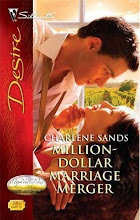
And for fun, I'll be running a weekly CONTEST about the Writing Topic of the Week. This week it's emotion -- so all you have to do is post here Monday through Friday about what book you've read recently or in the past that really hit you hard with emotion. What emotions did the book evoke and why?
One winner will be picked randomly from your comments and I'll send out a signed Bunking Down with the Boss, or any other of my available titles you'd like. Read the blog all week and I'll post the winners on Friday.
I'll go first. I just finished Susan Mallery's SIZZLING. It was a great story about a famous jock baseball player and his grandmother's nurse, a sort of plain Jane. Susan has a way to suck you right into the story immediately with intriguing characters that you instantly care about. Why? Well the heroine has lived all her life envying her "perfect" sister and as a result, she feels inferior. It's something we can relate to on a very elemental basis. We've all known someone close to us,that seemed to have it all. But our heroine isn't a wilting flower - she's good at her job, feisty and takes no bull from the handsome hunk who's had women adoring him all of his life.
Immediately our hero sees something different in the heroine. And she makes him sees that living the good life, isn't good enough. Through her, he believes he can be a better man. There's heart tugging emotion when we learn the "perfect" sister is dying and the sacrifices our heroine makes because of her love of the sister she'd always envyed. There's a scene in the story that is so heartbreaking, that I talked myself out of crying, "I'm okay. I can handle this." But the words and the emotion evoked were too much for me and soon I found tears running down my face. And just minutes later into the story, I'm cheering and happy again. That's the benchmark for a good story - make the reader feel emotion, make it real and make it believable.
When writing a story, put your whole heart into it. Dig deep inside and flesh out all the emotions you can. An easy way to do this is to really "know" your main characters. Know who they are and what's most important to them. Feel what they feel, see what they see. Know their perceptions and what's underneath the facade that they show to the outside world. Most often when I see unpublished works the key element missing in the story is that, I don't care. I don't care about the character. I don't care about what they want in life. I don't care to continue reading the story.
Putting a level of emotion in the story from the very beginning is fundamental. The opening line or opening few paragraphs should give the reader a real clear sense of who the characters are - on an emotional level. Emotion shouldn't be resigned to just dialogue. Put it in description, narrative action and certainly in introspection. Think about some amazing opening lines of books you've read. Didn't they make you want to read the entire book in one sitting? This is Susan's opening line in Sizzling. Note how it immediately tells you something about the hero and the line makes you want to continue reading to find out more. "Until six forty-five that Thursday morning, women had always loved Reid Buchanan. "
Okay, we've all known men like Reid Buchanon, right? But what happened to him that day? Why did everything change for him? The author's next few witty paragraphs go into detail about Reid's life to date, very briefly, but immediately we feel something about this man. We've already formed an opinion about him. That's a good thing. We care.
So what book have you read lately that evoked a good deal of emotion in you? Why? Remember to post here and check back during the week.
Next up on the blog: More on emotion! Contest continues...





 And the winner of two autographed Desires and a $20.00 Borders Gift card is:
And the winner of two autographed Desires and a $20.00 Borders Gift card is:
























